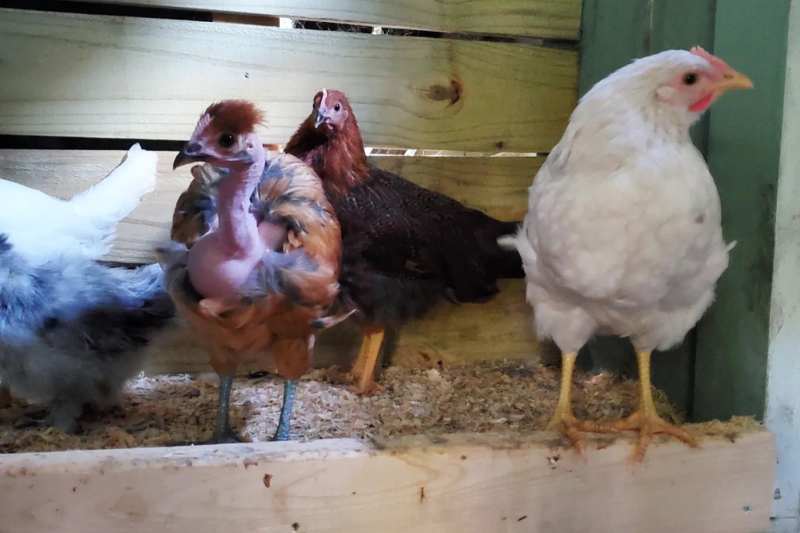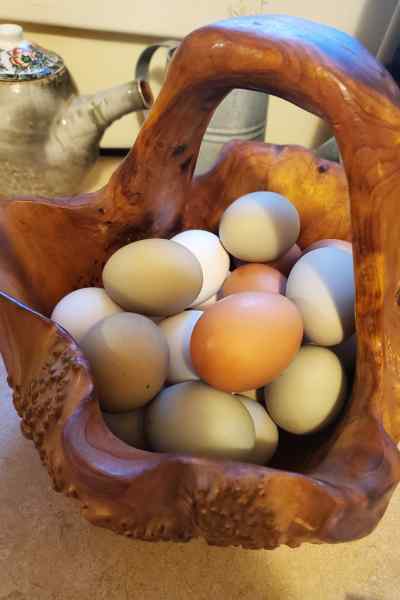Raising chickens has picked up steam as a popular hobby in recent years, with big benefits including fresh eggs and a better environment.
Taking a stroll through many neighborhoods, it’s becoming more likely you’ll see a flock of hens exploring suburban – or even urban – backyards. Raising chickens has picked up steam as a popular hobby in recent years, especially among millennials and Gen Z. Since the pandemic, many have started to explore backyard farming not only as an enjoyable pastime but a way to feed their families and make a positive impact on the planet.
In its 2021-2022 National Pet Owners Survey, the American Pet Product Association (APPA) estimated an increase in ownership of backyard chickens from 8% of American households in 2018 to 13% in 2020. It’s no surprise that when people start their own backyard coop, it’s usually because they want fresh eggs.
Eating Locally Reduces Environmental Impact
When keeping your own coop, you can easily produce 200-300 eggs per year. These eggs are coming from chickens that have room to stretch, forage, and socialize (chickens are surprisingly communal!). Both eggs and chicken meat bought from the supermarket are often sourced from industrial farms. These farms, built with profit in mind, usually keep chickens in cramped cages. In a lot of these operations, a chicken might go through its entire life without ever exploring the world beyond its cage.
Humane animal conditions aren’t the only concern. These massive operations are substantial environmental polluters – of waterways in particular.
According to a report from the Pew Environment Group, the Chesapeake Bay is suffering from the roughly 523 million chickens produced a year in just Maryland and Delaware alone.
“The environmental consequences of the broiler business’ explosive growth are especially profound in the Chesapeake Bay, one of the nation’s most important, scenic and threatened bodies of water,” said Robert Martin, an expert on industrial animal agriculture reform at the Pew Environment Group. “Instead of working to limit the effects of all this chicken waste, the industry has fought to avoid responsibility for cleaning up one of our national treasures.”
And don’t forget – when you can walk out to your backyard for eggs instead of driving to the store to buy a dozen that’s been shipped on diesel-guzzling trucks for hundreds of miles, it’s most certainly a win for the environment.
Chickens and Gardens Go Hand-in-Hand
When my husband and I started our own flock this summer, one of the benefits we were most excited for was experiencing the harmony between chickens and our garden.
We’ve been buying chicken compost for years, as it’s one of the best natural fertilizers for a garden. Now, instead of buying expensive bags of compost, we can take the waste product from our flock to boost our crop yield. Don’t add it directly to your garden though, the Chicago Botanic Garden warns. High in ammonia, it needs time to break down. Mix it into your compost pit, give it about six months, and you’ll have the perfect, nitrogen-rich soil to add to your garden.
In addition, chickens can drastically reduce your tilling time. Let them loose on a new garden bed, and they’ll use their feet and beaks to tear up the soil looking for tasty treats.
A Safe Way to Control Pests
Stop using insecticides in your yard that can have devastating effects on the local ecosystem. Instead, opt for a flock. Chickens love roaming around the yard looking for slugs, snails, beetles, and more. In fact, just the other day I observed one of our hens pluck a mosquito right out of thin air!
Insect pests can become a nightmare for a gardener or anyone trying to make the most out of their outdoor space. Not only will this trick cut down on pests, but is also a beneficial addition to a healthy chicken’s diet.
Save Money at the Market
While the upfront cost of starting a backyard coop may seem daunting, when broken down, you’ll actually be saving in the long run.
One curious coop keeper broke down the financial savings of producing your own eggs vs. buying them at the store. In her article, Cheaper than Store-Bought Eggs, Kristina Seleshanko estimated her family saved about $244 a year by raising their own hens.
This didn’t take into account start-up costs. While we were lucky enough to be able to convert an old garden shed into a coop with minimal cost, between chicks and supplies, we still spent less than $300 to start a flock of 20 chicks. Standard coops can be purchased for a few hundred dollars, but if you’re handy and looking for a new project, there are plenty of resources out there to learn how to build your own.
If all these reasons aren’t enough to convince you to start your own backyard chicken coop, here’s one more – chickens are great pets! There’s nothing like watching your chicks grow into healthy, egg-producing chickens. Not only are they a great source of entertainment, but also create a rewarding experience that stems from a self-sufficient, eco-friendly lifestyle.
Interested in getting started with your own backyard coop? Check out this step-by-step guide on raising chicks.

Written by Carley Kimball
Freelance Journalist and OPL Content Contributor
“I’ve always tried to implement planet-friendly practices in my life but didn’t quite realize just how much of an impact individuals can make until I was introduced to One Planet Life. I’m so excited to be able to utilize my professional skills to contribute valuable information and positive personal experiences to help make the world a better place.”











